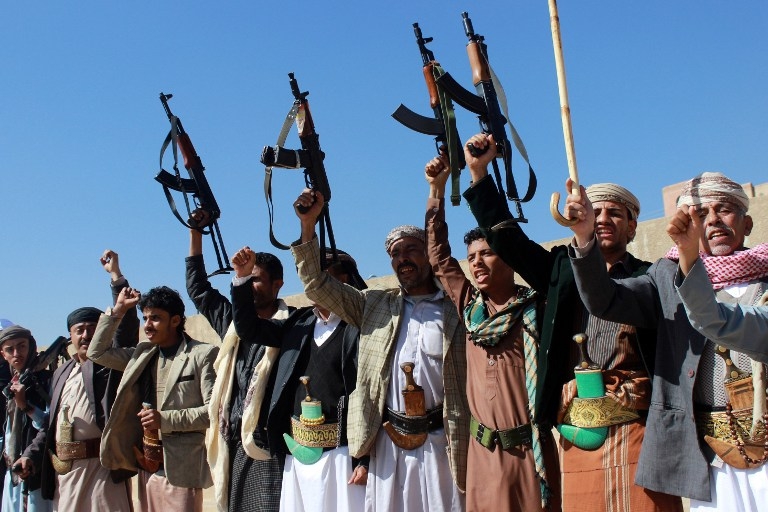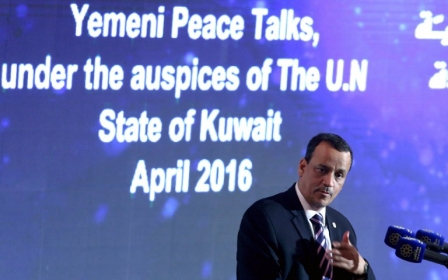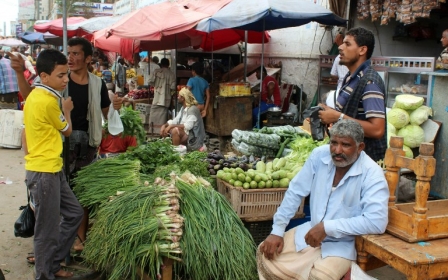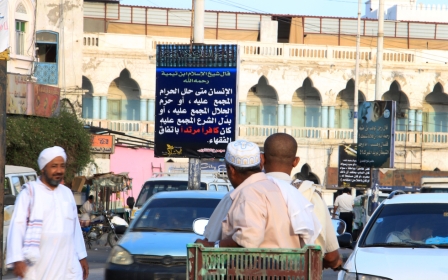Yemen's Houthis behind 'spree of arbitrary arrests and torture': Amnesty

Amnesty International on Wednesday accused Yemeni rebels of carrying out a "brutal" campaign of arbitrary arrests and torture of opponents since they seized the capital Sanaa in 2014.
Shia Houthi militias, who are backed by troops loyal to ousted president Ali Abdullah Saleh, have "carried out a wave of arrests of... opponents, arbitrarily seizing critics at gunpoint and subjecting some to enforced disappearance," the rights watchdog said.
Amnesty, in a statement, said "a spree of arbitrary arrests, disappearances and torture by Houthi forces to persecute opponents" was part of a "chilling campaign to quash dissent".
Its report, named "Where is my father? Detention and disappearance in Houthi-controlled Yemen," was based on a detailed examination of 60 cases of detention in Taez, Ibb and Hodeida, Amnesty said.
The warring parties at talks in Kuwait have discussed a deal to release half of the detainees and prisoners they hold before the start of the Muslim holy fasting month of Ramadan in early June.
But the deal was in jeopardy on Tuesday after Yemen's government suspended its participation in the peace talks, which have been underway for almost a month.
The Houthis overran Sanaa unopposed in September 2014 and went on to expand their control in the impoverished country, advancing to southern provinces.
"Houthi forces have presided over a brutal and deliberate campaign targeting their political opponents and other critics since December 2014," regional deputy director James Lynch said in a statement.
"Enforced disappearance is an abhorrent crime and cannot be justified under any circumstances," he said.
Amnesty said that some detainees have been held for up to 17 months without trial or even seeing a prosecutor or a judge.
It said the majority of those targeted are activists, journalists and figures affiliated to the Islah party, an Islamist party with some links to the Muslim Brotherhood.
In March 2015, a Saudi-led Arab coalition launched a military campaign against the rebels after they advanced on the refuge of President Abd Rabbuh Hadi in Yemen's second city, Aden. The coalition has also been widely accused by human rights groups of committing potential war crimes through its bombing campaign.
Loyalists have since managed to push rebels out of Aden and four other southern provinces, but the Houthis and their allies remain in control of Sanaa and the bulk of the north.
The conflict has left more than 6,400 people dead and 2.8 million displaced since March last year, according to the United Nations.
New MEE newsletter: Jerusalem Dispatch
Sign up to get the latest insights and analysis on Israel-Palestine, alongside Turkey Unpacked and other MEE newsletters
Middle East Eye delivers independent and unrivalled coverage and analysis of the Middle East, North Africa and beyond. To learn more about republishing this content and the associated fees, please fill out this form. More about MEE can be found here.




